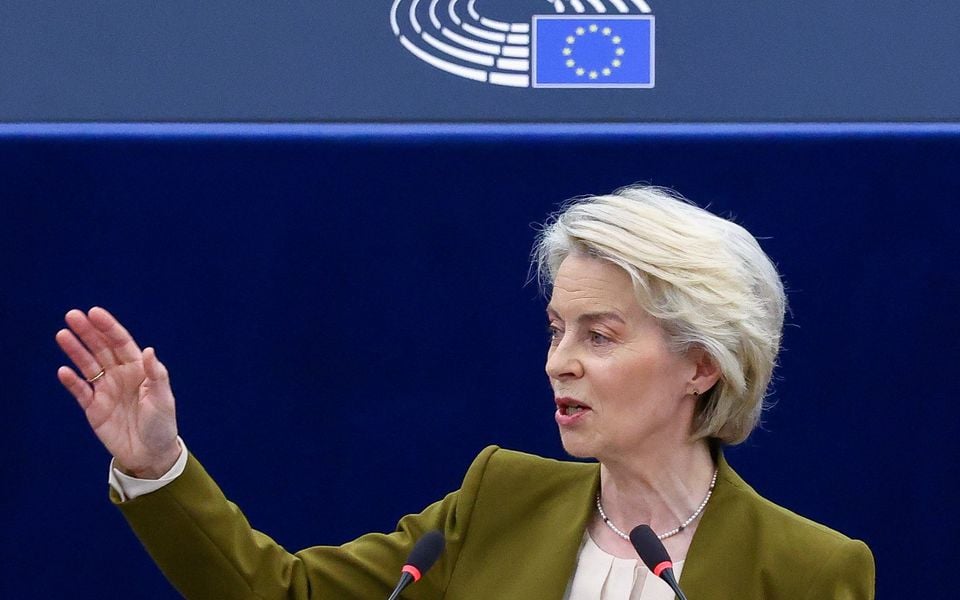The omens could not have been worse for the European Union: A few hours before Commission President Ursula von der Leyen presented her State of the Union speech, Russian military drones violated the airspace of Poland, a member of both the EU and NATO, which borders Ukraine. A day earlier, the Middle East crisis intensified, with Israel striking Hamas officials in Qatar.
On Monday, France’s political instability worsened, with the government losing a vote of confidence and the president appointing a new prime minister, the third in the space of a year. Also, the annual speech before the European Parliament provided an opportunity for the publication of reports and comments on how little progress had been achieved over the past year in the Union’s effort to adopt and implement policies that could secure its survival and its credibility on the global scene.
With Donald Trump’s America now an unpredictable ally (at best), or even a rival, with China’s growing self-confidence and assertiveness, with Vladimir Putin’s perennial belligerence, with the French drama increasing doubts as to the EU’s course, von der Leyen had no option but to speak frankly about the Union’s challenges.
“This is a fight for our future,” she declared. “This must be Europe’s independence moment,” she added. “Ultimately, it is about having the freedom and the power to determine our own destiny… The central question for us today is a simple one. Does Europe have the stomach for this fight? Do we have the unity and the sense of urgency? The political will and the political skill to compromise? Or do we want to just fight between ourselves? To be paralyzed by our divisions.”
One does not need to agree with von der Leyen on everything (and many in the European Parliament and in member-states disagree with her and with the Commission’s policies), but she placed the “state of the union” in the correct context: The European project is threatened not only by the turbulent global environment and by the fact that the EU was not prepared for this, but also by internal strife and by the difficulty in taking decisions on crucial issues.
Last year, in presenting his report on the challenges faced by the EU, Mario Draghi stressed that the Union faced an existential threat if it did not improve in the sectors of innovation, if it did not achieve greater economic and market union, if it did not beat down bureaucracy, among many other issues. Of the 176 proposals presented by the former Italian prime minister and former head of the European Central Bank, just 11 percent of them have been “fully implemented,” according to the Brussels-based European Policy Innovation Council (Politico reported). If the EU is left further behind by the United States and China in the economy, artificial intelligence and technology, this would be a threat to member-states’ economies, welfare systems and even their democracy.
The Commission president spoke about defense, security, international relations, competitiveness, daily issues, democracy, and the rule of law, noting progress and obstacles. The essence of her speech, though, was at the start. And it was directed at Europe’s leaders and to every citizen: Do we have the stomach for this fight?
